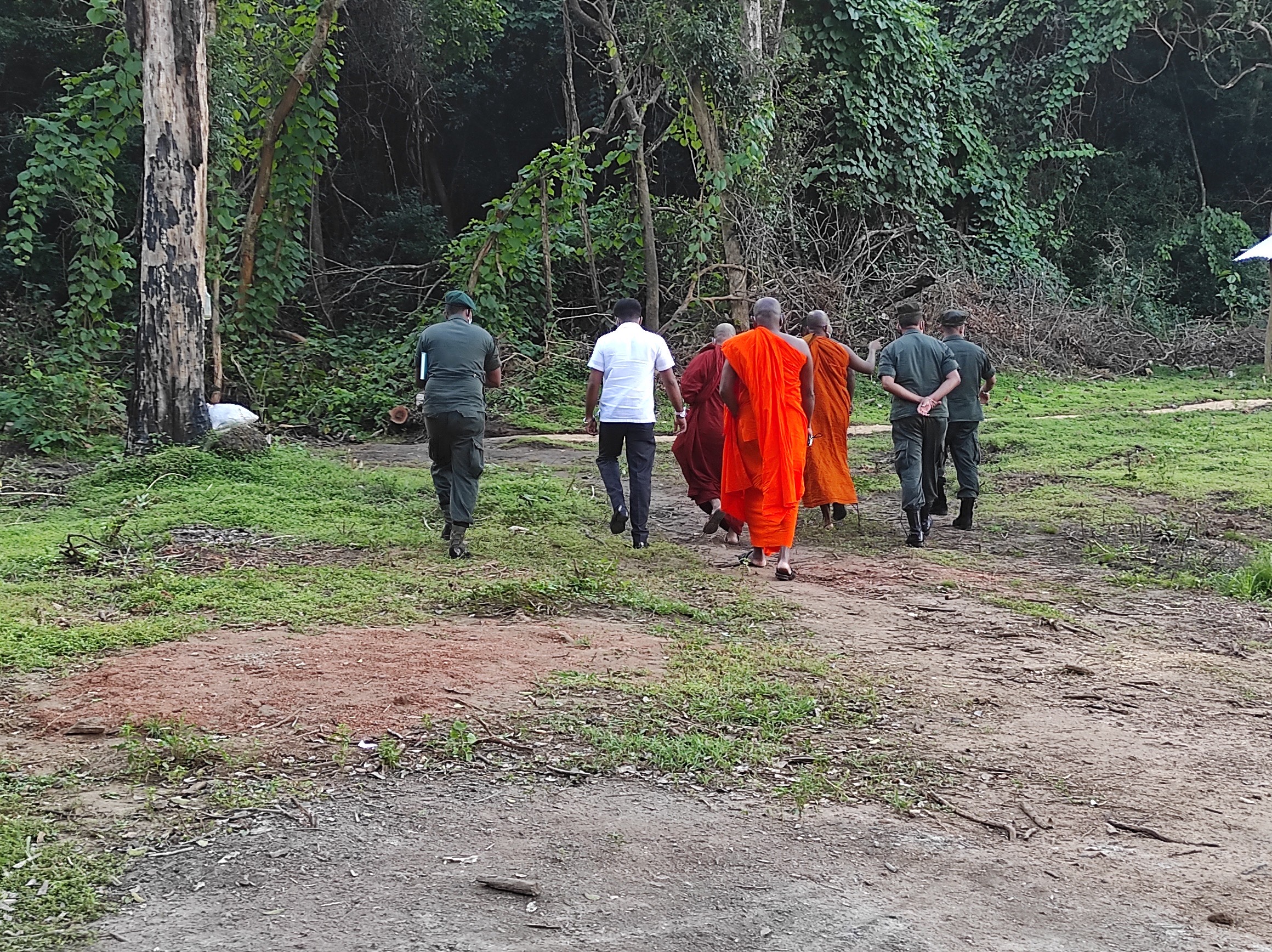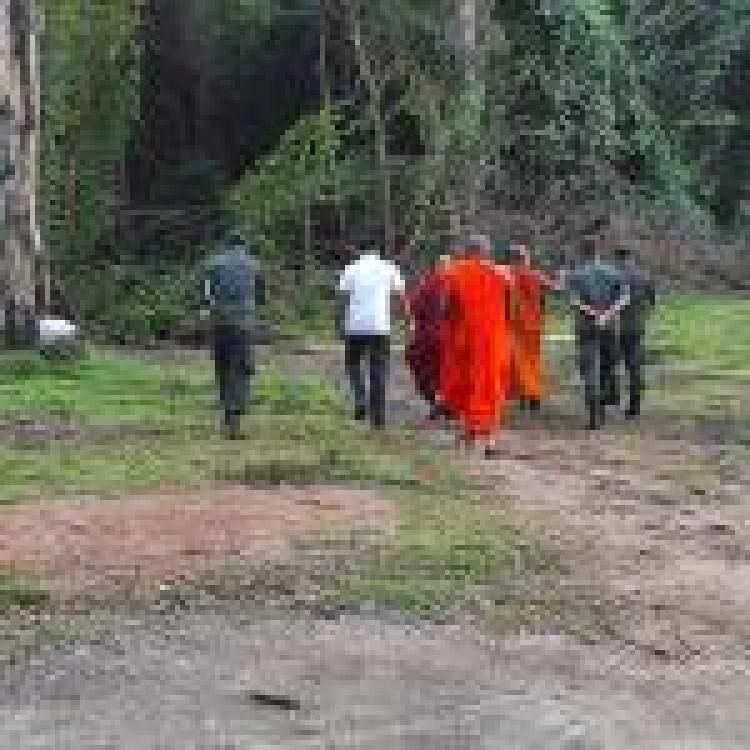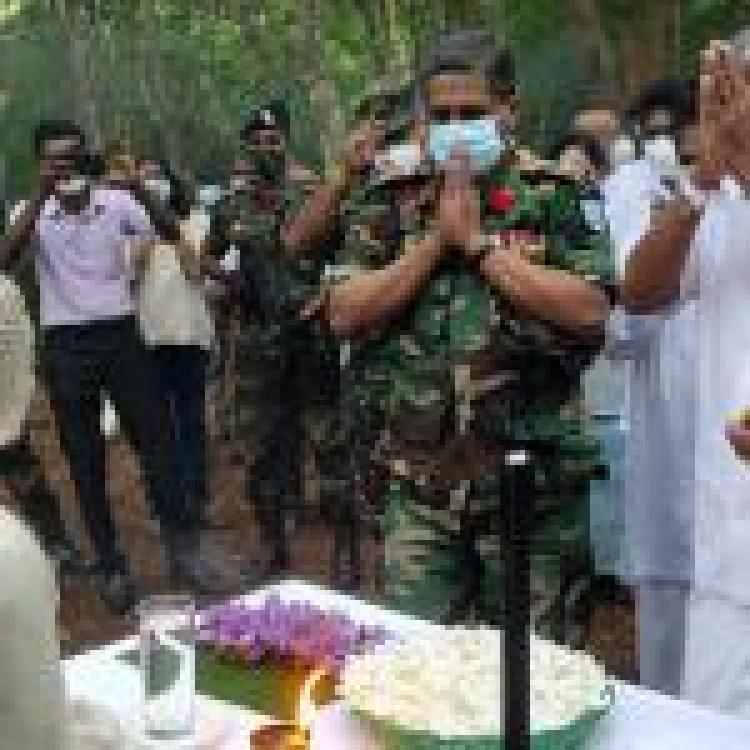
A Pirith chanting ceremony, a Buddhist religious ritual, is currently underway in Kurunthoormalai, Mullaitivu, violating COVID-19 restrictions in place on the island. Hundreds of armed personnel have been stationed at the site as the event is being held under the supervision of Sri Lankan security forces.
The Archaeological Department and Sinhala-Buddhist monks are also in attendance at the ritual.
The archaeological department began excavations in Thannimurippu, Kurunthoormalai, home to the traditional Athi Ayyanar Tamil temple, earlier this year on the pretext that ancient Buddhist structures are buried in the site.
The Pirith ceremony is currently taking place at night so as to avoid public attention. It is understood that a ceremony marking the renovation of the supposedly buried Buddhist structure would take place tomorrow morning.
Despite neither the Mullaitivu Police nor the District Administration granting permission for the Pirith event to proceed, a large number of Buddhist monks gathered at the site under the aegis of the Sri Lankan army, without consulting or taking permission from the health department.
As the island has witnessed a sharp spike in the number of COVID-19 cases, restrictions have been imposed on religious gatherings and mass assembly. However, the army’s move to conduct the Buddhist ritual, without any kind of permission from health authorities, raises risks of a further spread of the coronavirus, and has also raised the issue of uneven application of pandemic restrictions, with Tamil religious leaders arrested for organising gatherings.
The Pirith ceremony is proceeding with armed forces in Mullaitivu, dozens of monks and Archaeological Department officials coming together to create elaborate arrangements including awnings and colourful festoons.
The archaeological excavations in Kurunthoormalai over the past four months were undertaken with support from the armed forces and with little transparency. Local Tamil journalists were prevented from entering the site.
At this stage, the sudden conduct of a Buddhist ritual on such a large scale has raised suspicions amongst the people in Mullaitivu.


